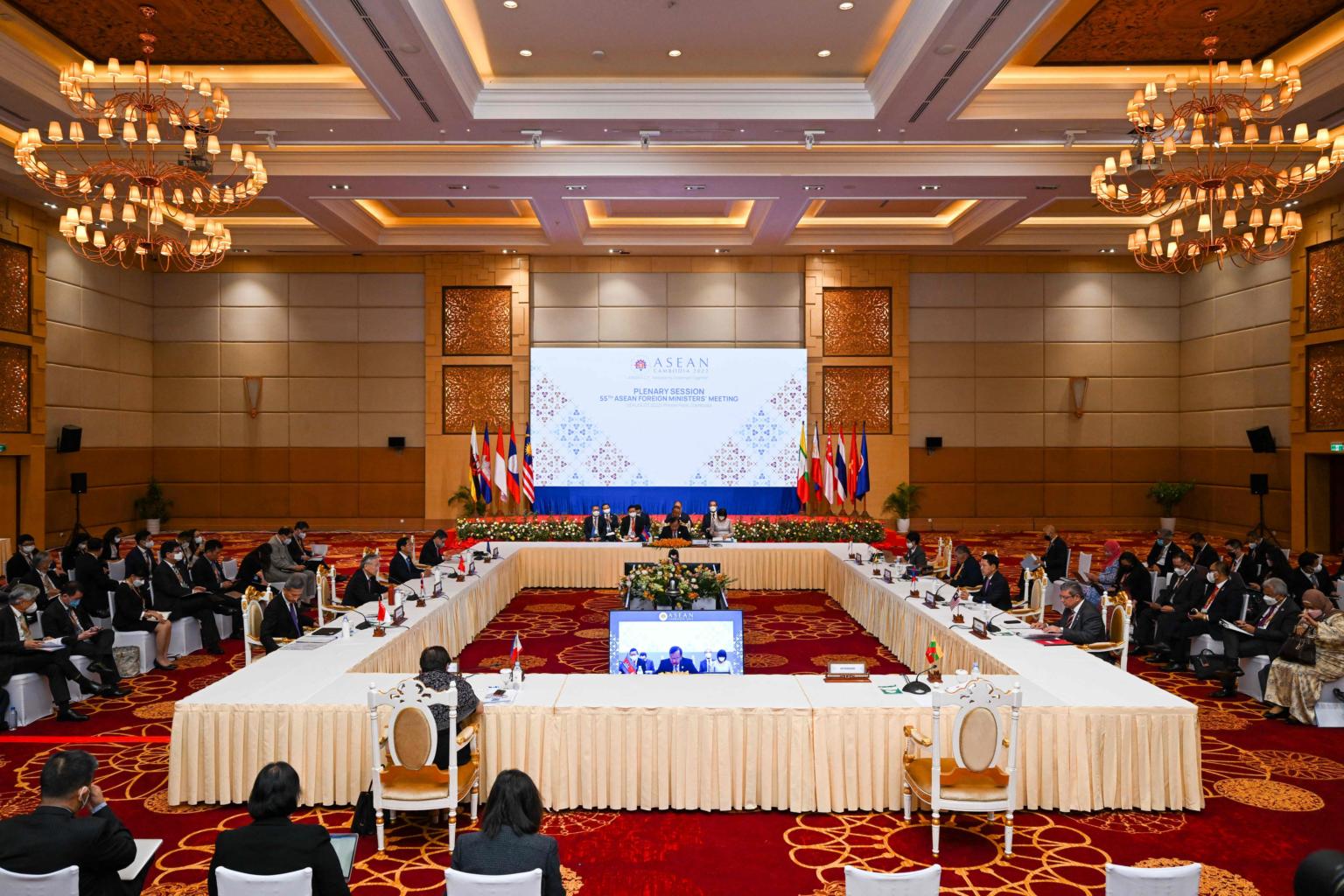Asean leaders will have to assess progress of Myanmar peace plans: Vivian Balakrishnan
Sign up now: Get ST's newsletters delivered to your inbox

Asean foreign ministers had registered their disappointment that the five-point plan had hardly seen any progress.
PHOTO: AFP
Follow topic:
SINGAPORE - Myanmar's progress in implementing peace plans agreed upon with the rest of Asean will be something the bloc's leaders will have to assess when the grouping holds a high-level meeting in November.
The situation in Myanmar remains dire and the primary responsibility for the ongoing crisis there, which has included large-scale civilian death and injuries, lies with the country's military, Foreign Minister Vivian Balakrishnan said on Tuesday.
The peace plan, a five-point consensus drawn up in April last year, was intended to bring an end to the chaos following the February 2021 military coup that has killed more than 2,000 people.
Singapore and Asean are "deeply disappointed" in the little progress that has been made in the implementation of these plans, said Dr Balakrishnan in a written parliamentary reply to Workers' Party MPs Gerald Giam (Aljunied GRC) and Dennis Tan (Hougang).
"The Asean leaders will have to assess the progress in the Five-Point Consensus' implementation at the Asean Summits this November. Depending on how the situation evolves, they will have to make some difficult decisions to guide Asean's next steps," said the minister.
The five points of the consensus are: an immediate end to violence in the country, dialogue among all parties concerned, the appointment of an Asean special envoy to facilitate mediation, the provision of humanitarian assistance by Asean, and a visit by the special envoy to Myanmar to meet all parties.
Dr Balakrishnan noted that there has been little progress in its implementation despite efforts by successive special envoys of the Asean chair - Brunei and Cambodia - and direct entreaties by the bloc's current chair, Cambodia.
"Instead, aerial bombings of opposition-controlled areas and the execution of opposition activists have occurred. The timings of these actions by the Tatmadaw underscore their disregard for both Asean and the Five-Point Consensus," he said, referring to the Myanmar military.
Following their meeting in Cambodia last month, Dr Balakrishnan and the other Asean foreign ministers had registered their disappointment that the five-point plan had hardly seen any progress.
They also proposed that Asean leaders take stock of the plans to resolve the political crisis in Myanmar, in order to decide on the best way forward.
Myanmar's peace, security and stability is not only in its own interest but also for the whole region, said Dr Balakrishnan, and without political reconciliation and "dialogue in good faith" by all stakeholders, the necessary political solution cannot be found.
"The setbacks to Asean's efforts are not a matter of Asean credibility, but rather of the Tatmadaw's intransigence," he noted, in response to Mr Tan's question as to whether Asean's credibility in promoting peace and stability in the region had been affected.
To Mr Giam's question about whether Singapore would work with Asean on targeted sanctions such as an arms embargo, Dr Balakrishnan said Singapore had voted in favour of the United Nations (UN) General Assembly's resolution in June 2021 to stop the flow of arms to Myanmar.
In addition, since April this year, the Republic has not authorised the transfer of items assessed to have potential military application to Myanmar, where there is a serious risk that they may be used to inflict violence on unarmed civilians.
"This is in line with our firm commitment to measures that will facilitate the de-escalation of violence in Myanmar and support efforts by Asean and the UN to achieve a negotiated political solution," he said.

